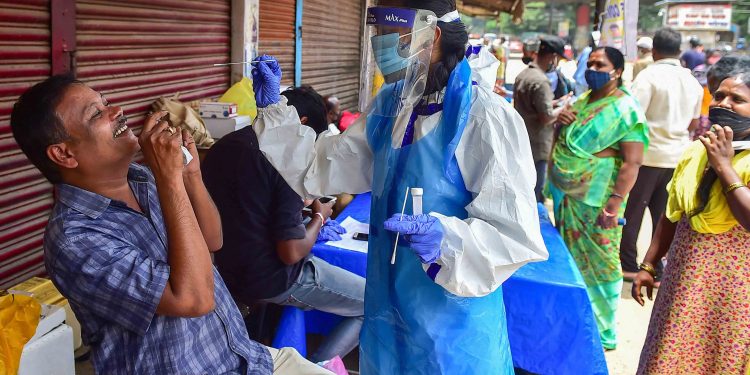New Delhi: Standard defense mechanisms such as masks, sanitisation and physical distancing will work to contain the new coronavirus strain. The new coronavirus strain has been detected in six people who came from the UK. Scientists said Tuesday that the existing precautionary measures are sufficient and assured that the mutant is not clinically more severe. They said there is no need to worry for the new strain if the prevalent methods are followed properly.
Anurag Agrawal, director of New Delhi’s CSIR-Institute of Genomics and Integrative Biology (IGIB) said there is nothing to be worried about. “Staying cautious and following good practices should be sufficient (to tackle the variant),” Agrawal said. He also said that the UK, where the variant was identified first, has not reported any clinical indication of the variant being more severe.
Virologist Upasana Ray agreed with the assessment that there is no cause for alarm because there is nothing to prove that the variant is more deadly. The senior scientist at CSIR-IICB, Kolkata, went a step further and said, “It has been said the transmission rate is more. However, for that also there is no laboratory based evidence.””
Ray also noted that a check on travel has already been suggested and said tests have been recommended for anyone entering India from the UK.
“The most important step required is implementing the basic precautions like using masks (that many people have stopped using) social distancing etc. A watch on the variant is also important to monitor its transmission and pathogenicity,” Ray said.
Rakesh Mishra, director of Hyderabad’s CSIR-Centre for Cellular and Microbiology added that there is no surprise to find the new variant of the virus in some of the samples tested in India. According to him, large-scale testing is required, and people need not worry too much about the new strain.
“It (new strain of COVID-19) is just fresh, otherwise it is the same virus and not much of an issue. Same symptoms, mortality, everything is the same… we just have to take precautions,” Mishra stated.
Though the new variant is more transmissible, it has not shown to cause more severe infection compared to other mutants, agreed Divya Tej Sowpati, a scientist at CSIR-CCMB. “Please note that though more transmissible, this strain is not shown to be clinically more severe. Also, the same defences work to contain the UK strain too – masks, sanitisation, and social distancing,” Sowpati tweeted Tuesday.
Immunologist Satyajit Rath said the variant is likely to be a cause for concern in terms of policy responses to COVID-19, but not in terms of individual risk of serious illness.
“However, the basis for this concern remains somewhat circumstantial at this point, since it is based on the correlation between the increasing prominence of this variant with growing case numbers in southern England over the past few weeks. More direct evidence, if any, is still awaited,” Rath from New Delhi’s National Institute of Immunology (NII) said.






































